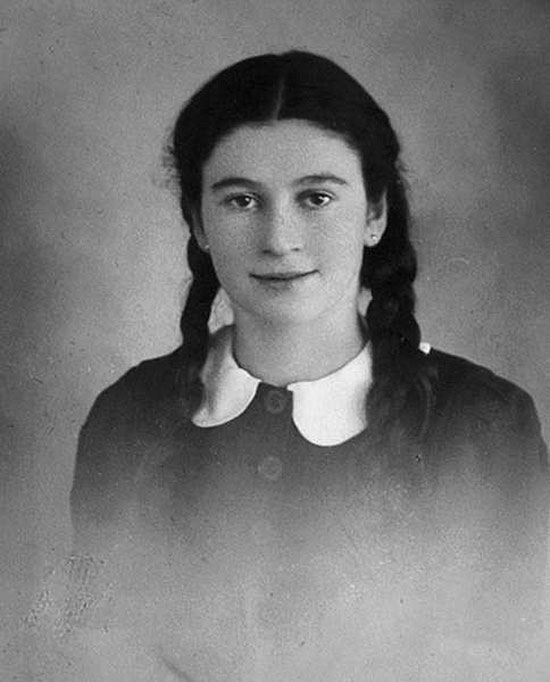
This is Gerda Weissmann Klein.
She spent three years in several different Nazi concentration camps. In late January of 1945, Gerda and 4,000 other Jewish women were forced to embark on a 350-mile death march to flee the advances of the Allied forces.
By early May, Gerda was one of only 120 women who were still alive. The rest—including several of her childhood friends—had died from exhaustion, starvation, random executions, and exposure to the elements.
Gerda was one day shy of her 21st birthday when she was rescued by American soldiers. Weighing only 68 lbs. (30.84 kg), Gerda’s hair was nearly white and her clothes were tattered and crawling with lice. She hadn’t taken a bath in three years.
She later recalled seeing the man who saved her life:
“I stood in the doorway of that factory, and I knew that I was free. I saw a strange car coming down the hill, with the white star of the American army on its hood. Two men in strange uniforms sat in it, we gathered them to be Americans. One of the men came towards me, and I looked at him with incredible awe and disbelief that I was looking at someone who fought for us. Of course I was terribly frightened. I looked at him and said, ‘we are Jewish.’ There was a long paused, then he said, ‘so am I.’ It was the greatest moment of my life. He asked me to come with him, and he held the door open for me. He has now been holding the door open for 50 years as my husband.”

Gerda married Kurt Klein in Paris and moved to Buffalo, New York where they eventually had three children and eight grandchildren.
Gerda became a human rights activist and published her own autobiography titled, “All But My Life.” She is still alive today at age 97.
(via)

Theodore Lee is the editor of Caveman Circus. He strives for self-improvement in all areas of his life, except his candy consumption, where he remains a champion gummy worm enthusiast. When not writing about mindfulness or living in integrity, you can find him hiding giant bags of sour patch kids under the bed.
